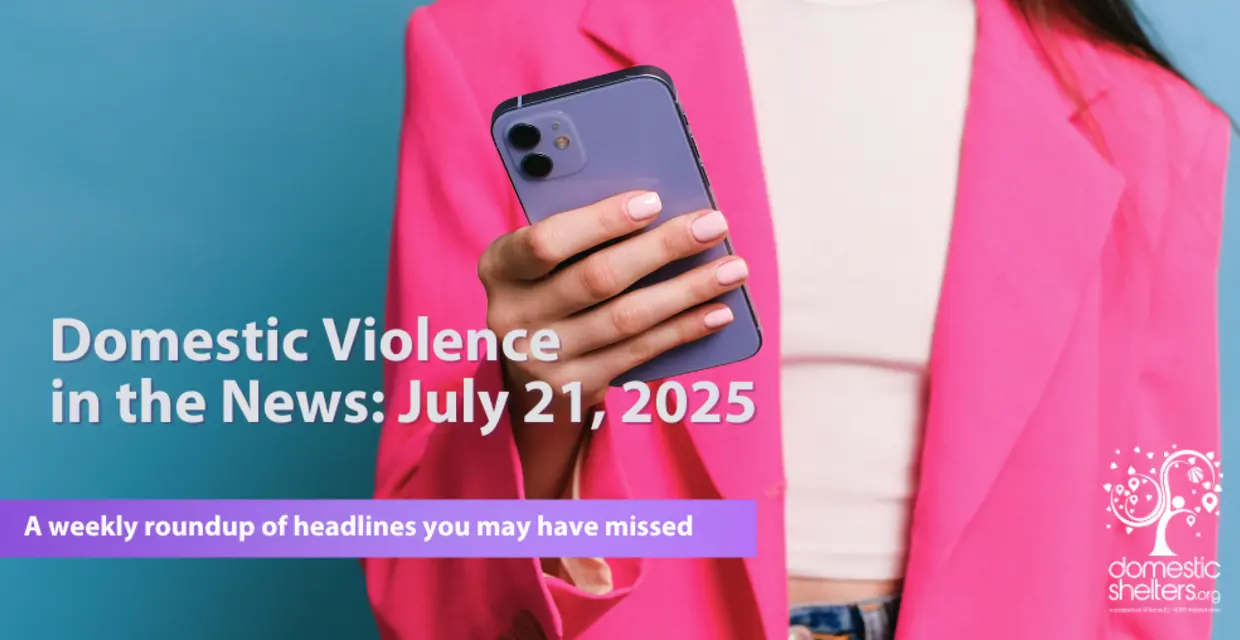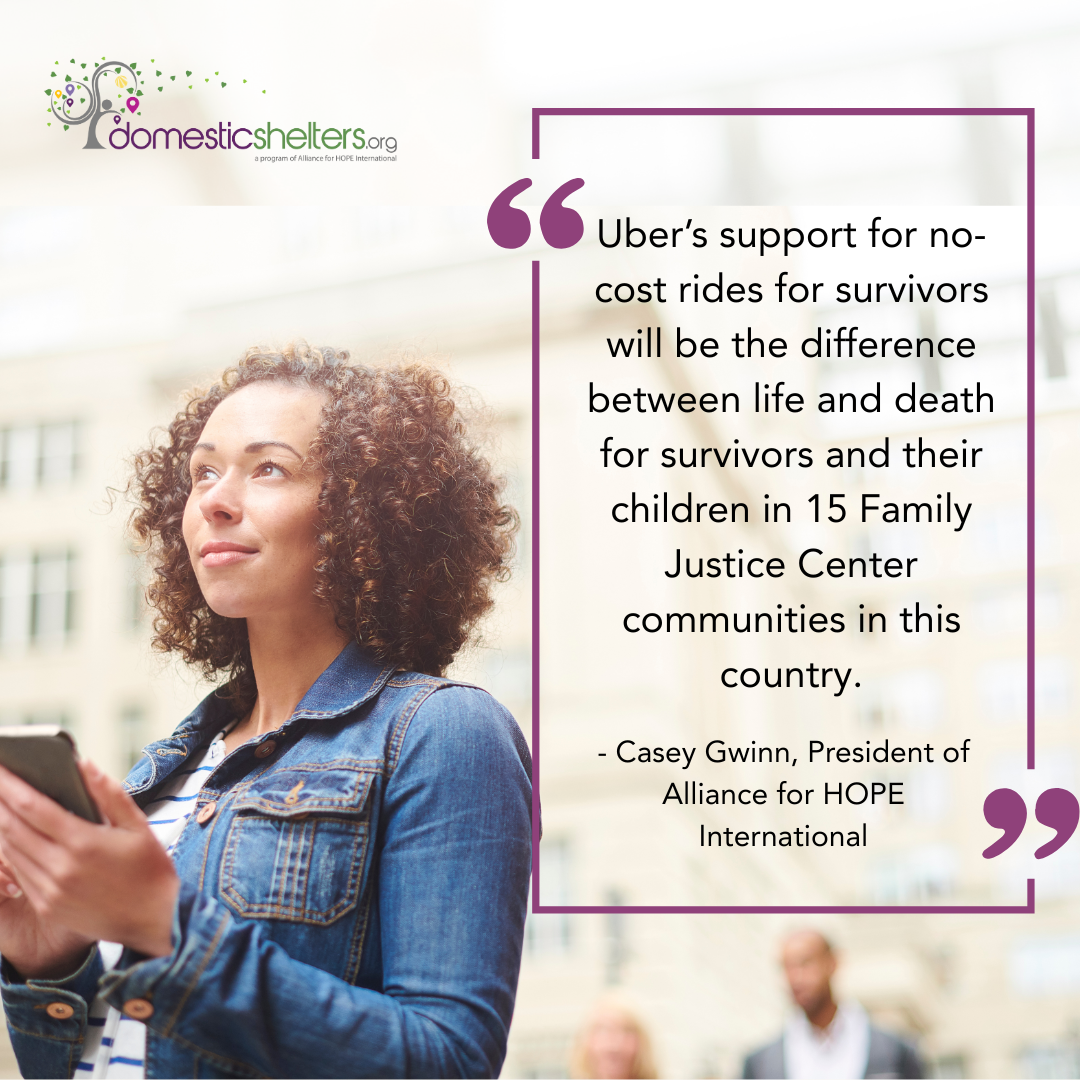1. Select a discrete app icon.

notes
Domestic Violence Headlines for the Week of July 21
Hope rides get survivors to safety, immigrant mom and kids killed after fearing to seek help, a stalking victim is killed and a sheriff’s deputy is fired after just a few months on the job for DV
- Jul 25, 2025

Welcome to another week where the horrors don't stop for women, but Uber now does.
Uber and Alliance for HOPE International Partner to Get Survivors to Safety
A new program called “Hope Rides,” launched this week, will help eliminate the transportation barrier many survivors face when trying to escape domestic violence. Uber and the Alliance for HOPE International have formed a national partnership to provide free rides to 15 Family Justice Centers (FJCs) across nine states.
A Family Justice Center is a singular location where survivors of domestic violence, sexual assault, child abuse, human trafficking and elder or dependent adult abuse can find all of the services they may need. These Centers focus on reducing the number of times survivors have to tell their stories and the number of places they must travel for help. During trauma, being shuffled around town to eight or nine different agencies and being asked to repeat a story of abusive trauma many times over can deter survivors from disclosing abuse or asking for help.
“Transportation for domestic violence survivors saves lives,” says Casey Gwinn, the President of Alliance for HOPE International, and the visionary behind the Family Justice Center movement in America. “Survivors often don’t seek help because they cannot access the lifesaving services of Family Justice Centers. Uber’s support for no-cost rides for survivors will be the difference between life and death for survivors and their children in 15 Family Justice Center communities in this country.”
Most survivors of domestic violence are subjected to isolation as well as financial abuse in combination with other types of power and control. This is done intentionally by an abuser to keep the survivor trapped. Without a way to get to a domestic violence shelter for support and services, many survivors feel hopeless about the prospect of leaving. This is especially true for those survivors in rural areas.
New York City will be the launching pad for Hope Rides. Working in conjunction with the Mayor’s Fund and the NYC Mayor’s Office to End Domestic Violence and Gender-Based Violence (ENDGBV), the five FJCs located in the boroughs of NYC will soon be able to offer free rides to survivors looking to escape.

“Trying to leave a harmful situation is often the most dangerous time for a survivor of gendered violence. In these critical moments, access to a safe, immediate way out can be lifesaving,” says Saloni Sethi, Commissioner of the ENDGBV.
Hope Rides comes on the heels of Uber’s launch of “Women Preferences,” another program working to curb violence against women. Uber will begin offering the option for women riders to choose rides with women drivers while also giving women drivers the option to request women riders only.
Source: Press release
Utah Mom and Kids Murdered by Abuser, Afraid to Call Shelter for Fear of Deportation
An abusive husband and father started his West Jordan, Utah house on fire last Friday, trapping his wife and two children inside. All four members of the family died, including the perpetrator. The victims included 33-year-old Jaimar Bravo Gil and her children, ages 14 and 9.
Before the older child died, she was able to give first responders information that led police to suspect her father had started the blaze. The man reportedly had a history of domestic violence toward his family, but family members say Gil was too afraid to report it, fearing she would be deported back to her home country of Venezuela. Gil’s brother, Julio Matos Gil, spoke to the local news station and said his sister’s family moved to the U.S. two years ago to give her kids a better future.
"Unfortunately, I had to go through this, and my sister," Julio said, speaking in Spanish and translated by an interpreter. "Try not [to let this] happen to another family. Try to talk, try to communicate, try to let someone know. But don't let this person, one person, end a family like this."
There is a growing concern among advocates that more and more survivors of domestic violence will resist reaching out to shelters for fear of being reported to immigration authorities.
Kimmi Wolf with the Utah Domestic Violence Coalition wants survivors to know that calls made to hotlines are confidential, the number isn’t tracked, and survivors do not have to provide their name or address. Wolf also says that if survivors do stay at a shelter, their identity is protected.
“As a nonprofit that receives federal funding, some of our funding is tied to confidentiality, so we are not allowed to confirm or deny that an individual, regardless of status, is a client or is residing in the shelter,” she says.
Calling a hotline doesn’t mean a survivor necessarily needs shelter. A survivor can access resources like safety planning, information on obtaining an order of protection or learn more about applying for a U visa. The U visa program grants undocumented immigrants legal status to stay in the U.S. for up to four years, as well as eligibility to apply for a green card after three years, when they have been victims of certain crimes, including domestic violence.
Canadian Woman Shot and Killed by Ex-Partner After Begging Court to Stop Him from Stalking Her
A “relentless obsession” turned deadly two months after a 26-year-old Calgary man was charged with the criminal harassment and stalking of his ex-girlfriend, Madisson Cobb, 23. The conditions of Devon Malik’s release were that he would stay away from Cobb, something he chose to do the opposite of. Malik shot and killed Cobb over the weekend in a parking garage. Malik made his first court appearance on Wednesday, charged with first-degree murder.
In Cobb’s restraining order affidavit, she described Malik’s stalking of her to be “nonstop” after their Jan. 28 breakup, saying, “I live in fear every day from him, I want him out of my life.” She told the court that Malik has a gun, though police say they could not locate it.
The presence of a gun in a domestic violence situation increases the risk of homicide for women by 500 percent, say experts. According to Everytown.org, an anti-gun violence nonprofit, 70 women are shot and killed by a partner every month, and 4.5 million women in the U.S. have been threatened by an intimate partner with a gun. In Canada, one out of every three women killed by an intimate partner is killed by a gun.
Furthermore, stalking is incredibly common among abusers, both during a relationship but especially after a relationship ends. When an abuser feels like he has lost control over a partner, his violence often escalates. It’s estimated that at least 61 percent of female stalking victims are stalked by former intimate partners.
Learn what to do if you are being stalked in “What Is Stalking?”
Source: CBC.ca
Short-Lived Career for a Georgia Deputy Accused of Domestic Violence
A Georgia County sheriff’s deputy was fired after less than three months on the job after choosing to commit domestic violence. Paulding County deputy Scott McAdams, 36, was charged with reckless conduct, battery and cruelty to children in the second degree after a family member contacted the sheriff’s department regarding a domestic dispute.
Paulding County Sheriff Ashley Henson told the media, “We are committed to protecting all of our citizens no matter who is involved. Arresting and firing one of your own is one of the most difficult things a sheriff has to do. No one is above the law, especially one of our own. We will always do what is right."
According to the National Center for Women and Policing, domestic violence is two to four times more common among police officers than the general public. Police officers as abusers are a uniquely dangerous threat, as they frequently use their positions of power in law enforcement to threaten survivors into staying silent.
Additionally, officers often know the locations of domestic violence shelters, something they make survivors well aware of for purposes of intimidation. For these reasons, many abuse survivors married to police officers are scared to come forward.
“The abuser may say to you, ‘I control everything. I can get the system to not respond to you,’” says Carmen Pitre, executive director of the Sojourner Family Peace Center. However, she adds, not all officers are this conniving. “…99 percent of the officers don’t subscribe to that. Officers mostly have great intentions and want to help.”
For more information on what to do if you’re the victim of abuse by a partner in law enforcement, read “When Your Abuser is a Police Officer.”
Source: Fox5 Atlanta







